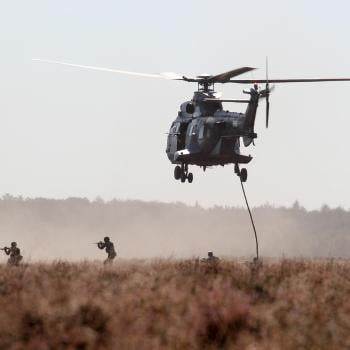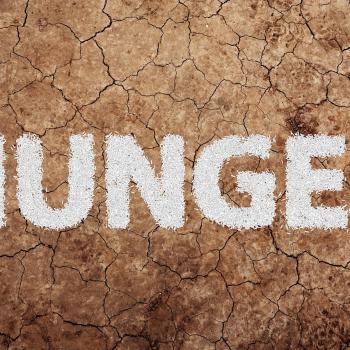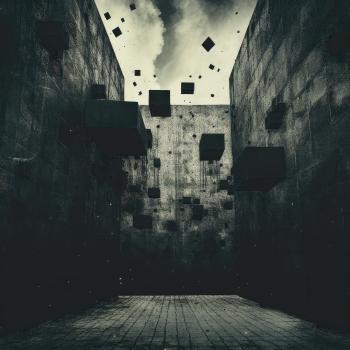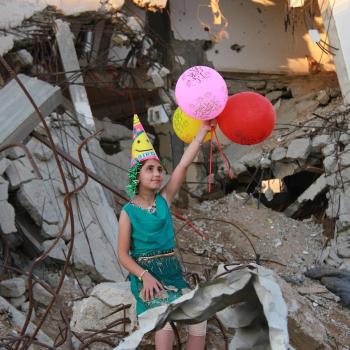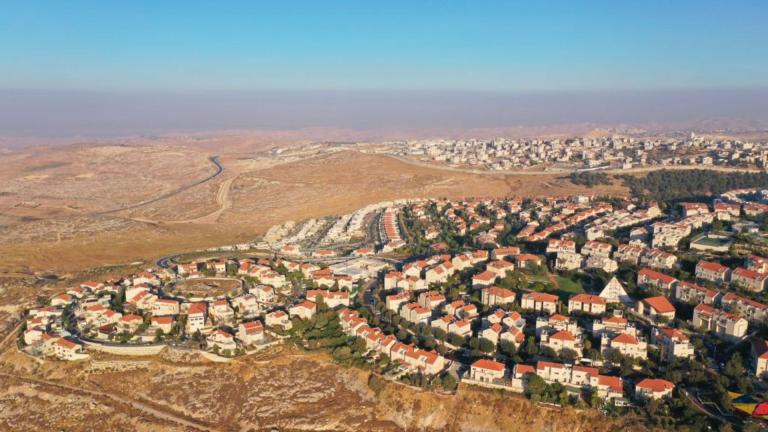
You have probably heard the legend that if you put a frog in cold water and slowly turn up the heat it will boil to death (which is not true btw). Well, that is what is being done to the Palestinians.
It’s a land grab
To understand the Israeli-Palestinian conflict better we must recognize that at its core it is a struggle for land.
There is the Jewish desire to have a homeland in which they can make their own laws and guarantee the safety and well-being of their people.
NB: It must be understood that the Jewish struggle for a national homeland began in the 1800’s—long before Hitler and the Holocaust. The Holocaust certainly accelerated the necessity of having a homeland for the Jews.
Then there is the Palestinian desire to have a land in which they can live freely and prosper.
But what happens when these two desires clash?
This is what happened when the United Nations decided in 1947 that the land of Palestine[1] was to be divided and both a Jewish state and a Palestinian state were to be formed.
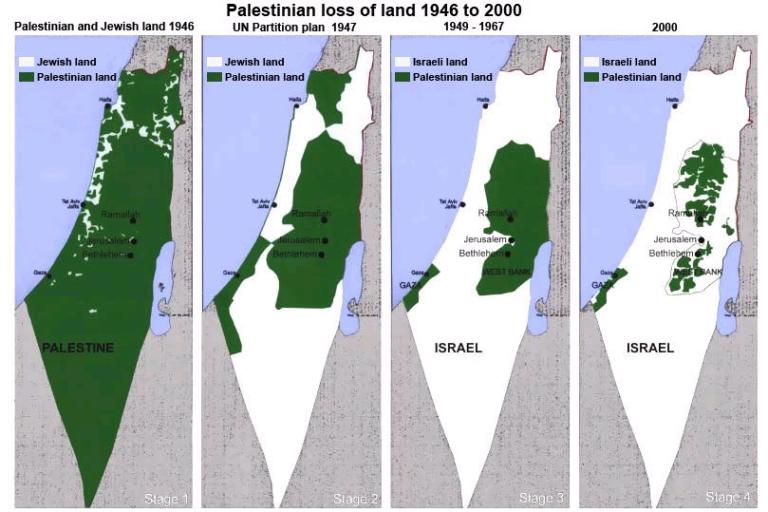
If you note the map above you can see that before 1947 much of the land belonged to the Arabs (green areas).
This means that in order for a Jewish state to be established, much of the land that belong to the Arabs, or “Palestinians,” had to be reappropriated for the new Jewish state.[2]
The notion that this was “a land without a people” for a “people without a land” is simply false.
Thus, the establishment of the state of Israel resulted in the destruction of, or the depopulation of, over 500+ Arab villages.
Virtually overnight more than 700,000 Arabs became refugees.
Occupation
The present conflict was further shaped by the events of 1967. In 1967, the areas known as the West Bank and Gaza, which were designated as lands for the “Palestinians,” were captured by the Israeli military.[3] The Palestinian territories, as these areas were known, then fell under military occupation.
When we talk about the suffering of the Palestinian people, we are primarily discussing the untold effects on the Palestinians as a result of the land confiscations and the continued occupation of these lands by the state of Israel.
Israel’s security concerns
There is no question that an existential threat remains for the Jewish people and the state of Israel. Israel continues to insist, and with justification, that their continued occupation of the West Bank is the result of a legitimate security need.[4]
As a result, Israel has remained the occupying power for more than 55 years.
Settlements
In addition to the prolonged occupation of the West Bank, the state of Israel continues to confiscate/steal lands that lie within the West Bank in order to build settlements and to move its population into the Palestinian lands. To date, there are an estimated 620,000 Israeli settlers living in over 200 settlements throughout the West Bank.[5]
The need to provide protection for these settlers provides another justification for the continuance of the Israeli occupation.
What many do not realize is that a good measure of the violence among Israelis and Palestinians is caused by clashes between Palestinians and the Israeli settlers.
Needless to say that the Palestinians are not at peace with the fact that Israel continues to appropriate their lands and defend these stolen lands by means of one of the world’s most powerful militaries.

Nor are the Palestinians at peace with the fact that some of the settlers are violent. That the settlers have often been allowed to act with impunity adds to the Palestinians’ pain. Of course, when the Palestinians attempt to defend their lands, they are deemed “terrorists” and punished with an iron fist.[6]
Settlement expansion
The expansion of settlements into the Palestinian lands continues unabated. Israel has been expanding their settlement enterprise at a rapid rate. In fact, the formation of a new Jewish neighborhood was recently authorized by the Israeli government. This settlement will cut straight through the middle of two Palestinian villages cutting off the peoples from one another.
This is why I have noted in these posts that the “status quo” is not “status quo.” The longer this conflict continues without an agreement, the more Palestinian land Israel acquires.
Note again the map showing the Palestinian loss of land. This time note the fourth panel. This shows the loss of land within the West Bank as a result of settlement expansion.

Israel’s policy appears simple: maintain the status quo long enough and eventually, there will not be a conflict to resolve.
Moving beyond the status quo
How do we move beyond the impasse of a protracted “status quo”? A status quo that continues to benefit one side and to further the oppression of the other?[7]
A status quo that ain’t status quo.
One option is to meet people and learn their stories: meet Palestinians and Israelis; meet Muslims, Jews and Christians.
I have met Palestinian and Israeli moms and dads who have lost children in this conflict. I have cried with them. I have heard their pleas to simply end this conflict so that no more parents will have to suffer as they have.
I have sat with three 30-year-old Palestinian men who have told me that they have resolved to neither have children nor even marry because the prospects of bringing a child into the world that they know would be cruel. They have told me that they have no hope that things will get better. And why should they? As one of the young men, in a raised voice, exclaimed, “Why should we have hope? Every time there we try to have hope it only gets worse.”
All I could do was sit and listen. All I could do was weep.
After we meet such people, it is then that we can no longer be content with allowing “diplomacy” to run its course.
When we meet those who are suffering, we become less content with allowing the “process” to run its course.
“Do something and do it now”—becomes our only option.
“But we are powerless,” someone might reply.
No, “I am powerless,” but “we are powerful.”
If we tell their stories, maybe then the world will listen.
In my next post, I want to tell you the story of a particular Palestinian man and his family. Let me just say that when I read Acts 6:15 and the description of Stephen, who while in Jerusalem and debating with the leading scholars of his day, his face still looked like that of an angel, I think of this man!
NB: our goal is to keep these posts free of charge. I do not intend to ever hide them behind a paywall. I can only do this if those of you who have been blessed by them and can afford to give ($5, $10, $25, or more/month) do so. You can give a tax-deductible contribution by following this link.
Please share this post and let others know about determinetruth.
If you wish to view this blog on your smartphone through the Determinetruth app simply download the “tithe.ly church” app on your smartphone and insert “determinetruth” as the church name you wish to follow. Once it is loaded, simply click on the “blog” icon and it will automatically load.
If you would like to have Rob speak at your church or organization in person or via zoom, please let us know by filling out the contact info on the Contact me tab on this site.
[1] I am using “Palestine” to identify the land and either “Arab” or “Palestinians” to refer to the Arab, and not Jewish, peoples who lived in this land in 1947. I am not about to enter the debate of what the land is called (“Judea and Samaria,” or “Israel” or “Palestine”). I am simply using the ancient Roman designation of Palestine: which dates back to the 2nd century. And its Arab people are “Palestinians.” Since this is the name of the present group of their descendants it is easier and less confusing.
[2] The residents of the land at the time were Jews, Muslims, and Christians (about 20% were Christians).
[3] There is evidence to suggest that the Israeli actions in the 1967 war were justified in light of a looming invasion of the neighboring states.
[4] Israel needs the ability to maintain a military presence on some of the “high grounds” that the West Bank offers.
[5] See https://www.btselem.org/topic/settlements. Note: B’Tselem is an Israeli human rights organization.
[6] I am not denying that some of the Palestinian violence goes beyond merely defending their lands. Attacks on innocent settlers and their families are unacceptable.
[7] I am not suggesting that Israelis do not suffer or that the threat of terrorist attacks is not real. Nor am I denying that many of the problems that the Palestinians face are caused by poor leadership. I am addressing here the plight of the Palestinians under occupation and the continued confiscation of their lands. There is indeed much more to discuss.






